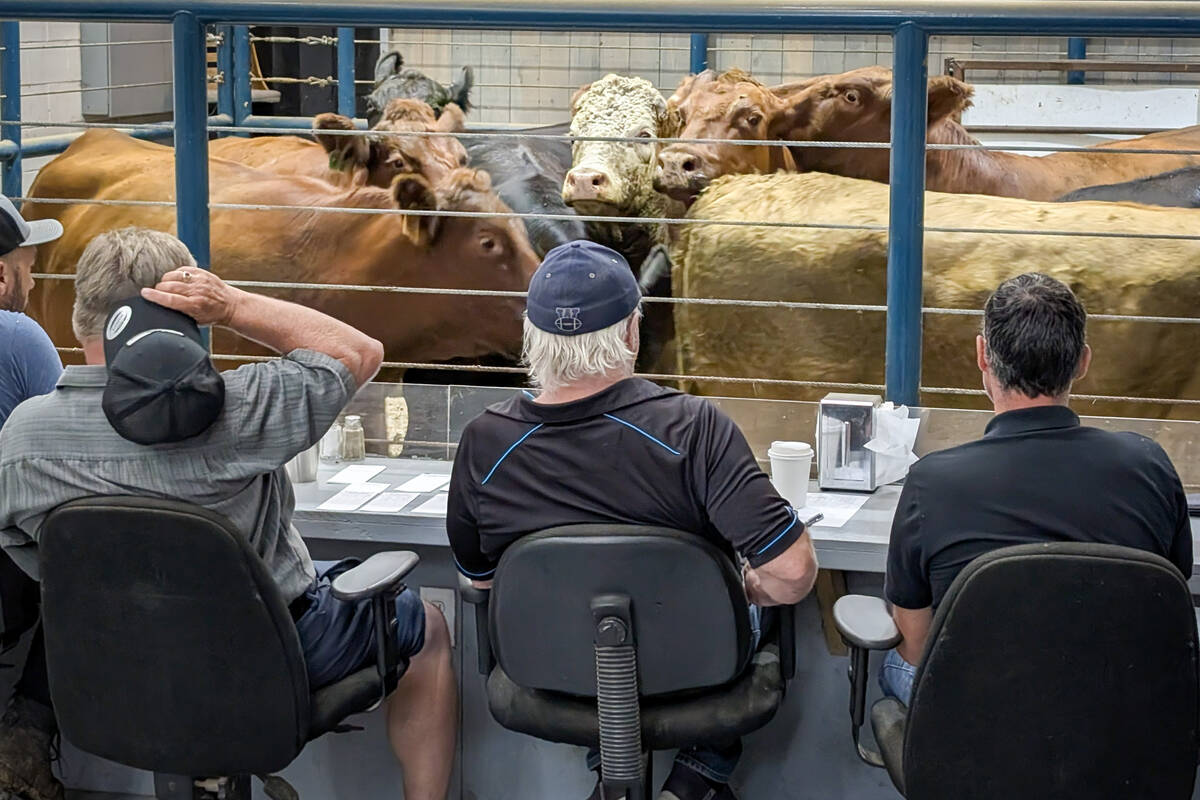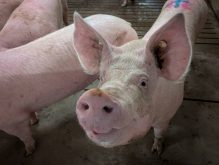A two-month study of how an infamous bacterium fared in a group of Ontario piglets may lead to a rethinking of future studies on the bacteria’s behaviour in pigs.
Researchers in pathobiology and population medicine at the University of Guelph this month published the results of their longitudinal study (that is, a study of a specific group over a longer period) of Clostridium difficile colonization in piglets.
C. difficile has gained notoriety in recent years as a diarrheal infection among the elderly and immunocompromised in hospitals and long-term care facilities in much of the western world. In some cases it can cause more serious intestinal illnesses such as colitis.
Read Also

U.S. livestock: Cattle fall back as inventory hits 75-year low
Most Chicago Mercantile Exchange cattle futures fell on Friday. Lean hog contracts also dipped. Most-traded April live cattle futures settled…
The Guelph study, published in the journal Anaerobe, found a “remarkable” decline in C. difficile colonization in feces from its group of piglets over the two-month study period.
Fecal samples taken from 10 sows before farrowing found C. difficile strains in four. On day 2 after farrowing, C. difficle was isolated from 90 of 121 piglets (74 per cent); on day 7, the number dropped to 56 per cent (66 of 117). On days 30, 44 and 62, the percentage of C. difficile colonization in the piglets dropped to 40, 23 and 3.7 per cent respectively.
Overall, C. difficile was isolated from one or more samples from 116 of 121 piglets (96 per cent), the researchers said.
But the varied colonization over a “relatively short” period of time could spell changes in how future studies of C. difficile colonization in pigs are designed and interpreted, the researchers wrote.
Specifically, they said, those relatively small differences in age may have a “major confounding effect” on the prevalence of C. difficile colonization.
The decline in prevalence over time may also have implications on public health concerns, the researchers suggested. Colonization rates of animals at the time of slaughter, they said, could be “presumably more relevant” than those seen earlier in the hogs’ lives.
Overall, they wrote, 97 per cent of the C. difficile isolates in the study were from types that also have been isolated from humans in Ontario.
From a human health standpoint, C. difficile bacteria can infect people who use their hands to touch surfaces contaminated with human feces, and then touch their mouths or eyes. Healthcare workers can spread the bacteria to their patients if their hands are contaminated.














